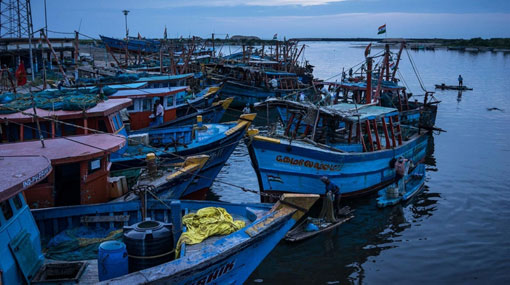Fisheries Act to be amended; stiff fines on trespassing boats
January 23, 2018 04:36 pm
The Ministry of Fisheries and Aquatic Resources Development has taken steps to draft a Bill for amending the Fisheries Act No 59 of 1979 (Foreign Fisheries Boats Regulation Act) and it will be presented to the Parliament for approval.
The Act will be amended to prevent illegal fishing activities in the Sri Lankan waters and protect the fisheries and aquatic resources of the coastal belt of Sri Lanka. Accordingly, a number of articles have been revised in the Act.
The fine imposed on foreign fishing vessels that were seized has been increased under the new amendments.
The current fine of Rs 1.5 million has been increased to a maximum of Rs. 175 million. The relevant legal action on the seized boats will be completed within a month.
Also, the Fisheries Department should inform the consular officer of the relevant country about the seized foreign vessel as soon as possible.
When legal action is being taken on the seized vessel the owner of the vessel should be present at the court.
Under the new amendment, the relevant fine for boats less than 15 meters in length is Rs. 5 million and for fishing boats up to 15-24 meter in length is Rs. 20 million. For boats the fine is Rs. 100 million, for boats 45-75 meters in length is Rs. 150 million and for boats over 75 meters in length is Rs. 175 million.
Further, any vessel entering the country’s coastal waters without licenses will be charged a fee proportional to the vessel’s length. Accordingly, the license fee will be increased from Rs. 750,000 to Rs. 3- 150 million depending on the vessel’s length.
The vessels that enter the Sri Lankan waters illegally are the South Indian fishing boats from Tamil Nadu and usually those vessels enter the Sri Lankan waters and about three times a week and engage in illegal activities, the Fisheries Ministry says.
The Indian government has also taken steps to intervene in the matter to provide a solution but the Tamil Nadu fishing vessels are continuing to engage in illegal fishing activities in the Sri Lankan waters, it added.












